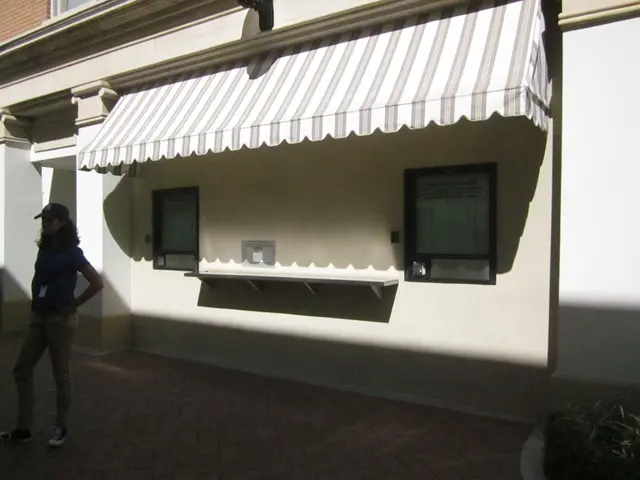The Looming Consequences: Söder's Grave Warning on Germany's Political Future
Germany braces for unpredictable repercussions due to decisions in Southern Bavaria - Germany Faces Unpredictable Outcomes Warns Soder
In the aftermath of CSU leader Friedrich Merz's defeat in the opening round of the chancellor election, Bavarian minister-president Markus Söder delivered a stark warning of potential repercussions for Germany and democracy. Addressing reporters following a cabinet meeting in Munich, Söder painted an ominous picture of the current political climate, with unpredictable consequences looming.
"We stand at a critical juncture," Söder admitted, "a bankrupt situation not only for our nation but for our democratic process as well." He emphasized the urgent need for stability, stating, "Now, more than ever, we must uphold stability, and unfortunately, we fell short today."
Söder accused parliamentarians from both Union and SPD who withheld their votes from Merz during the first round of playing reckless games, risking the country's future. The election of a chancellor, he stressed, encompassed more than just an individual; it represented a new government and, most importantly, the much-needed stability of the entire nation.
The warning echoed the precarious days leading up to Germany's Weimar Republic, prompting some to question whether history might be repeating itself. Söder warned, "The cynicism from AfD exemplifies the potential for a new administration’s collapse, much like the ominous shadows cast by the Weimar period." He insisted that the importance of reason and a calculated approach could not be overstated.
In an impassioned plea, Söder appealed to MPs to cast aside personal differences, territorial squabbles, and petty grudges. "This is no longer about individual ambitions, positioning, or scores to settle," he implored. "It's about our nation, about our democracy, about our collective future. Everything is salvageable, everything can be healed."
While history may not repeat itself, Söder's ominous words serve as a stark reminder of the fragility of democracy and the dangers of political instability. Germany's current political climate bears some resemblance to the fractious and volatile Weimar period, with new challenges and risks that must be carefully navigated.
The Weimar Parallels: Historical Insights
During the Weimar Republic (1919-1933), political instability was fueled by several factors:
- Economic Crisis: Hyperinflation, unemployment, and economic hardship generated widespread discontent and despair, ultimately paving the way for extremist parties.
- Political Fragmentation: The Weimar Republic was characterized by a fragmented political landscape, comprised of numerous small parties, making it impossible to form stable, cohesive governments.
- Rise of Extremism: The environment of political instability and economic malaise provided fertile ground for extremist parties like the Nazi Party to ultimately seize power.
While modern Germany's political landscape is significantly different, Söder's warning underscores the importance of maintaining a stable and effective government, lest history repeat itself. With patience, reason, and unity, the nation may successfully navigate the present challenges and secure a bright, stable future for all.
- Markus Söder, the Bavarian minister-president, compared the current political climate in Germany to the Weimar Republic, issuing a grave warning that political instability could reverberate through the democratic process.
- Söder's warning highlighting the potential repercussions of Germany's political future harkens back to the precarious days of the Weimar Republic, where unstable governments and economic malaise provided fertile ground for extremist parties to rise.
- In the aftermath of Friedrich Merz's defeat in the Chancellor election, Söder urged members of parliament to abandon personal differences, territorial squabbles, and petty grudges in favor of stability and reason, echoing the necessity of unity that was necessary during the Weimar Republic.
- As Germany grapples with its present challenges and risks, the Commission is therefore proposing that the Council should adopt a common position on the policy-and-legislation related to the labelling of foodstuffs, a calculated approach that emphasizes the need for stability and reason in politics, a sentiment shared by Markus Söder in his stark warning on Germany's political future.








